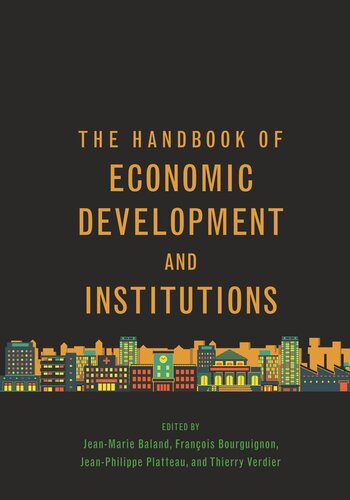

Most ebook files are in PDF format, so you can easily read them using various software such as Foxit Reader or directly on the Google Chrome browser.
Some ebook files are released by publishers in other formats such as .awz, .mobi, .epub, .fb2, etc. You may need to install specific software to read these formats on mobile/PC, such as Calibre.
Please read the tutorial at this link: https://ebookbell.com/faq
We offer FREE conversion to the popular formats you request; however, this may take some time. Therefore, right after payment, please email us, and we will try to provide the service as quickly as possible.
For some exceptional file formats or broken links (if any), please refrain from opening any disputes. Instead, email us first, and we will try to assist within a maximum of 6 hours.
EbookBell Team

0.0
0 reviewsThe definitive reference on the most current economics of development and institutions
The essential role that institutions play in understanding economic development has long been recognized across the social sciences, including in economics. Academic and policy interest in this subject has never been higher. The Handbook of Economic Development and Institutions is the first to bring together in one single volume the most cutting-edge work in this area by the best-known international economists. The volume’s editors, themselves leading scholars in the discipline, provide a comprehensive introduction, and the stellar contributors offer up-to-date analysis into institutional change and its interactions with the dynamics of economic development.
This book focuses on three critical issues: the definitions of institutions in order to argue for a causal link to development, the complex interplay between formal and informal institutions, and the evolution and coevolution of institutions and their interactions with the political economy of development. Topics examined include the relationship between institutions and growth, educational systems, the role of the media, and the intersection between traditional systems of patronage and political institutions. Each chapter—covering the frontier research in its area and pointing to new areas of research—is the product of extensive workshopping on the part of the contributors.
The definitive reference work on this topic, The Handbook of Economic Development and Institutions will be essential for academics, researchers, and professionals working in the field.